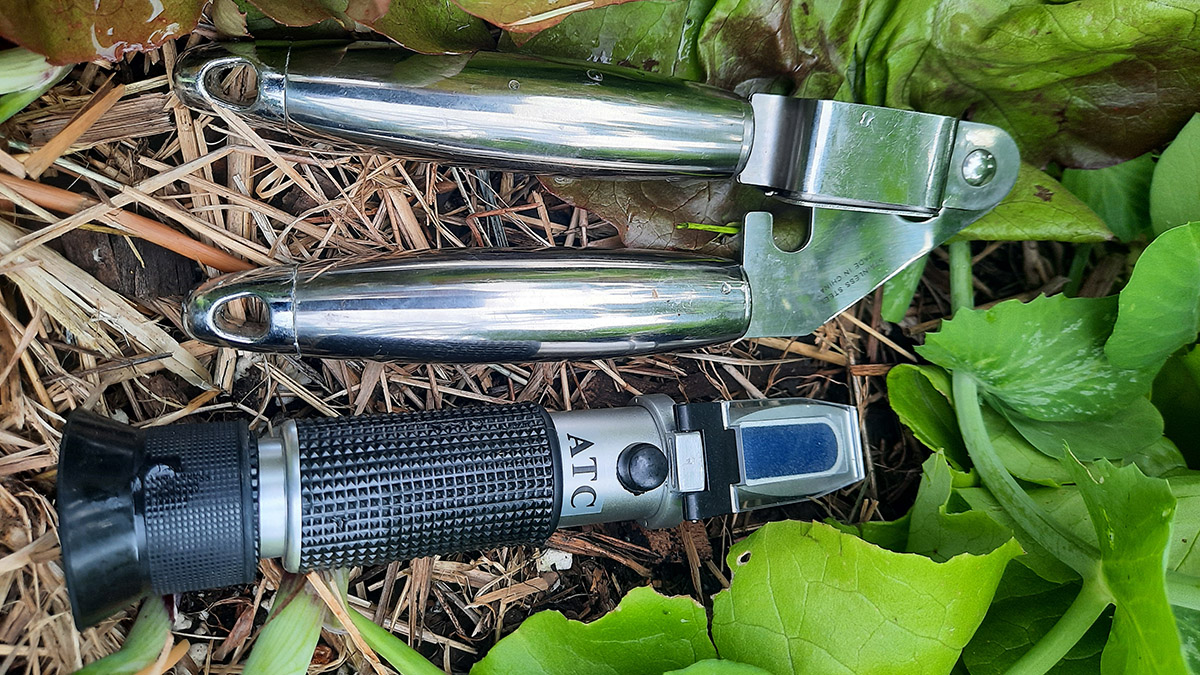Capturing Liquid Sunlight
Leaves are like little solar panels. Chasing the sun, they combine solar energy with water and carbon dioxide to make sugary sap. This liquid sunlight, stored in carbon rings, is the foundation of almost all life on earth. We cannot live without it.
How well a plant carries out photosynthesis depends on a number of factors – access to said sunlight, the minerals in the soil and the soil biology kicking around to turn those minerals into plant-available nutrients. Thus far 17 macro and micro nutrients have been identified as essential to plant growth (which itself includes optimal photosynthesis). For more on this, check out Jesse Frost’s The Living Soil Handbook.
Brix is a simple and inexpensive measure of how well your plants are photosynthesizing. All you need is a refractometer (readily available online), a garlic press, and a notepad. It works by looking at how light bends through liquid to measure the dissolved sugars in the sap. The higher the brix number, the better your plant is doing.
Brix can be affected by time of day (expect lower numbers in the morning and higher in the evening) and the weather (be aware of extended cloudy periods). So measure frequently, take good notes, and use it as a guide. You can have a little fun and compare the brix in your plants to the brix in your weeds. Which is getting it’s needs better met in your soil?!
First tear up some leaves of your desired plant (each time taking the last unfurled leaf on a branch in the top third of the plant), extract the sap using the garlic press and place a drop onto the refractometer. Close the lid, gently tap on the plastic, and then hold up to the light to see your reading. You are looking for a blurred line at around the 12-14 mark. Pests can sniff out an unhealthy plant in no time – any lower than this, and your plant is struggling to protect itself. If the line is crisp, your plant needs better access to nutrients. Change your growing strategy, then check again.
As Jesse says, “It is soil life that feeds plants, not farmers.” If your weeds are doing better than your fruit and vegetables, consider doing a soil biology analysis to see which microbes are in your soil and to learn how to better support them, so you can better support your plants.
